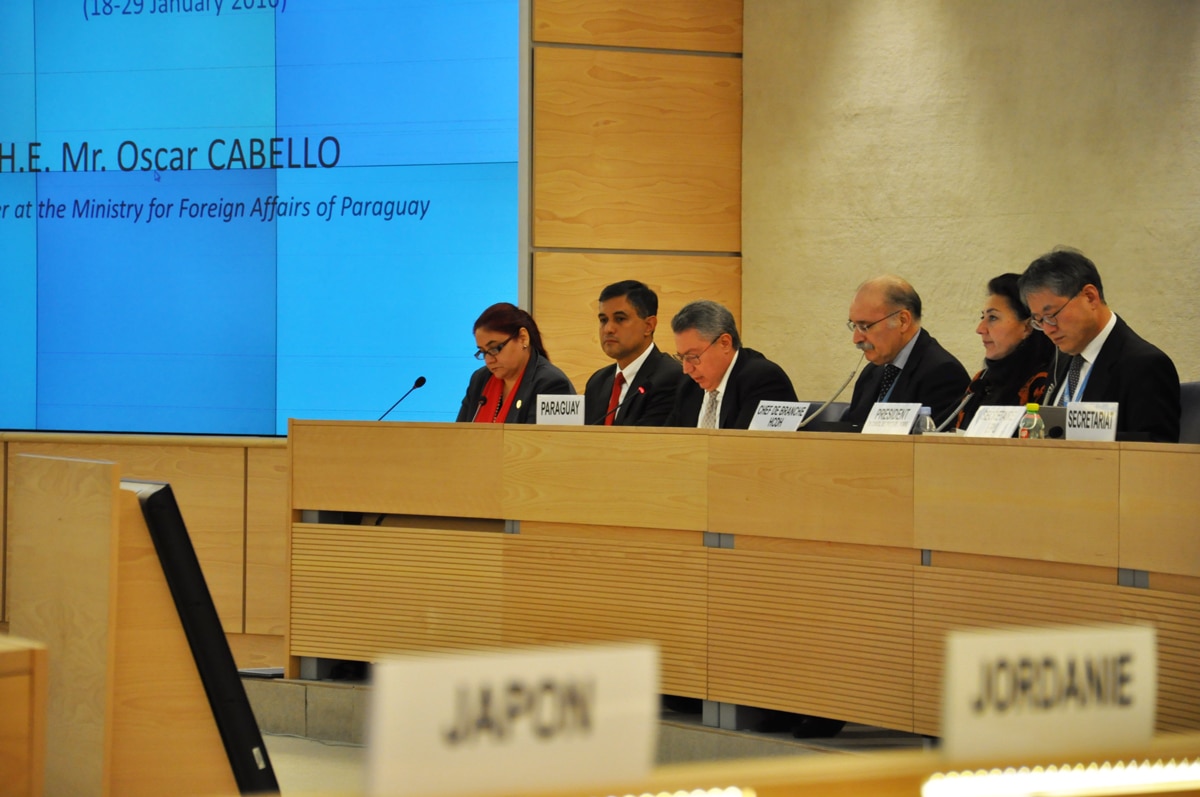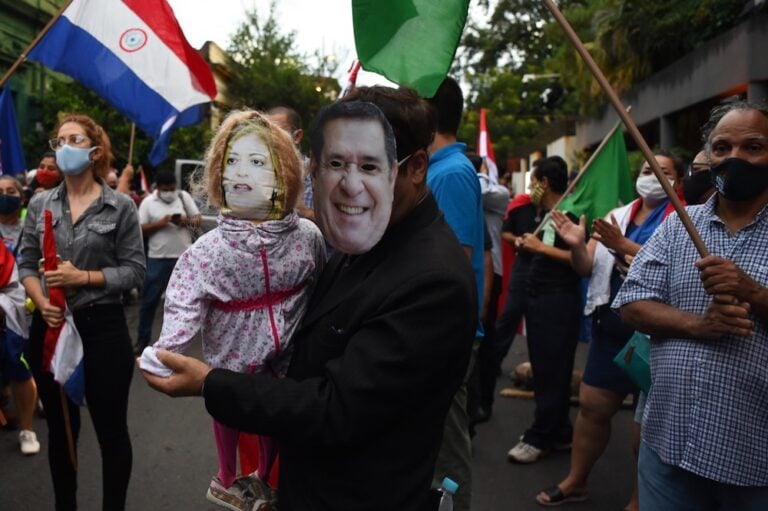IFEX-ALC's recommendation for the creation of “a special commission in the Public Prosecutor's Office to bring those responsible [for attacks against journalists and human rights defenders] to justice”, was accepted by Paraguay last week in Geneva.
Geneva, 22 January 2016 – To combat the impunity of all attacks against journalists and human rights defenders, to prosecute those responsible and to guarantee access to reparation for the victims. These are some of the commitments assumed by Paraguay during its review by the Universal Periodic Review (UPR).
This was announced today at the UN’s headquarters in Geneva, during the adoption of the draft report from the review to which the South American country was subject this past Wednesday 20 January. During the session of this UN Human Rights Council mechanism, under which all member states have to be evaluated, more than 70 countries participated and formulated recommendations to Paraguay on how to improve the human rights situation in the country.
Among other measures, and as requested by Canada, Paraguay agreed to establish “a special commission in the Public Prosecutor’s Office to bring those responsible [of attacks against journalists and human rights defenders] to justice”. The recommendation expressly calls for the investigation of the seventeen assassinations of journalists taken place since 1991, which have still not been clarified, and where the people responsible have yet to be prosecuted and sentenced.
Likewise, the suggestion by Greece to ensure “as a matter of priority” the protection of freedom of expression and to pursue the crimes against journalists was accepted. Paraguay also gave validation to the recommendations presented by countries such as the United States, Norway, Costa Rica and Italy, among others, to adopt the necessary means to guarantee the security of the journalists so they can carry out their “legitimate work without threat of violence or reprisals”.
According to a report submitted to the UPR by the Sindicato de Periodistas del Paraguay (Union of Journalists in Paraguay) and the international platform for freedom of expression, IFEX, in addition to the impunity of the seventeen assassinated journalists, those who carry out this profession are currently facing conditions of fragility and insecurity, especially in the “zones of conflict… influenced by illegal drug trafficking activities”.
During this second UPR review, Paraguay received a total of 193 recommendations, of which 186 were accepted, six were rejected and one decision was postponed until the adoption of the final draft of the report, which will take place during the Human Rights Council session in June this year. The postponed recommendation came from the United States and made reference to “convene an independent commission to investigate all credible allegations of human rights violations” that occurred in 2012 during the land evictions in the Curuguaty region, which resulted in the loss of life for eleven farmers and six policemen.
Among the recommendations rejected by the State, those asking for reforms in Paraguay’s punitive abortion laws, which penalizes abortion except when the mother’s health is at risk, as well as the ratification of the third Optional Protocol of the Convention on the Rights of the Child, stand out. With regard to the restriction on abortion, the Paraguayan delegation considers that the formulated recommendations do not comply with the national legislation, especially with article 4 of the
National Constitution.
In his closing remarks, the Vice Minister of Foreign Affairs, Oscar Cabello Sarubbi, who headed the official delegation, put forward that the country will submit a mid-term report in 2018 on the degree of compliance of the received recommendations during the review. He also indicated that Paraguay will continue strengthening its internal monitoring system of the recommendations, SIMORE, which permits a greater precision evaluation of the degree of implementation of the commitments made during the UPR.



